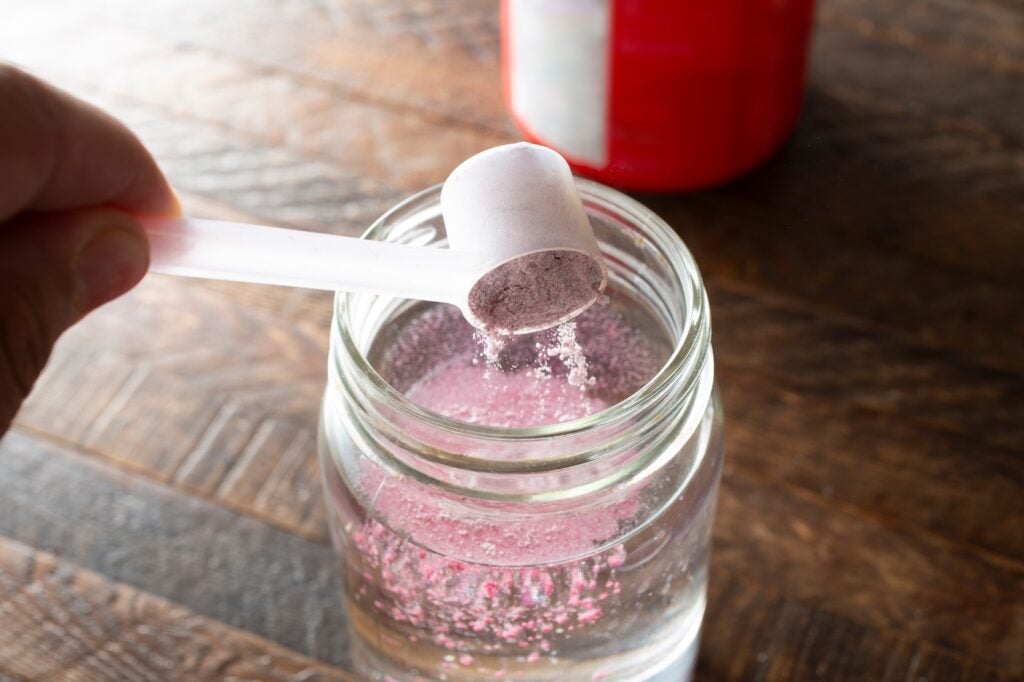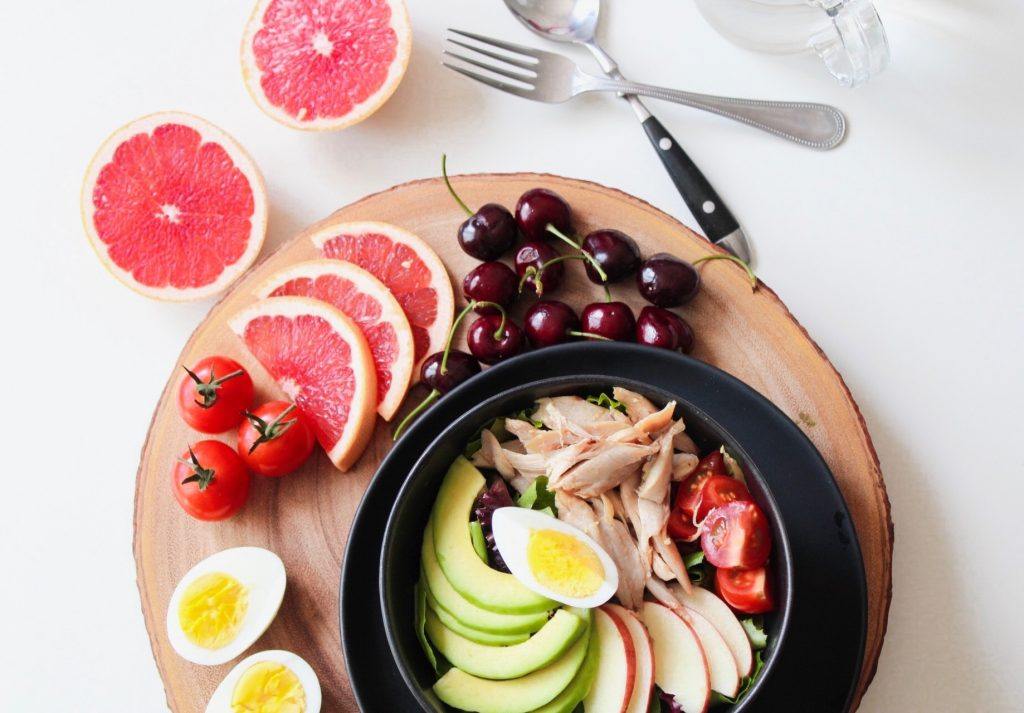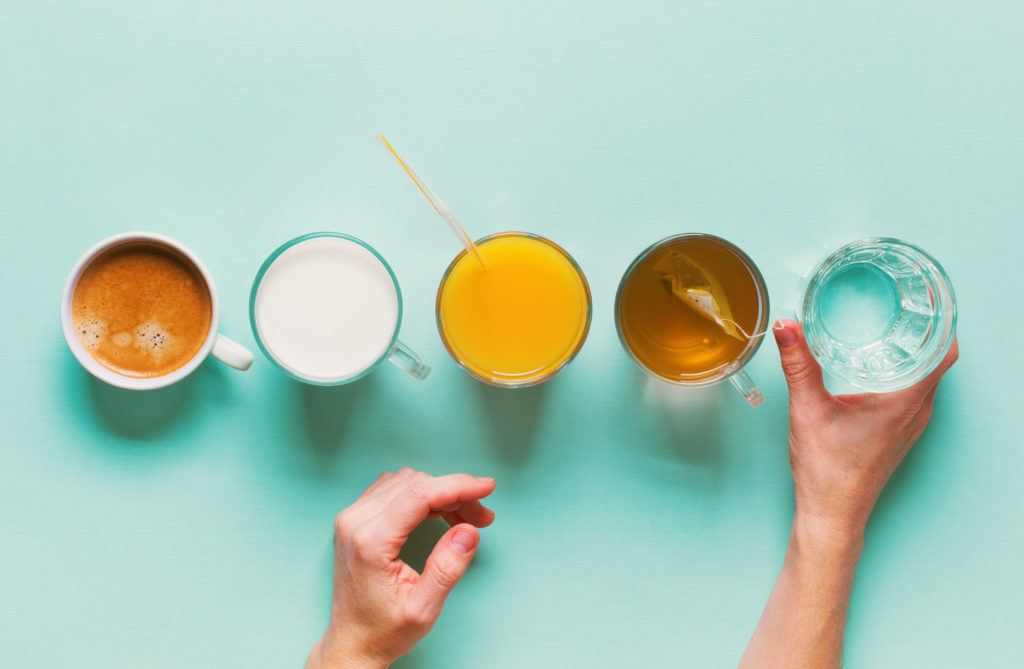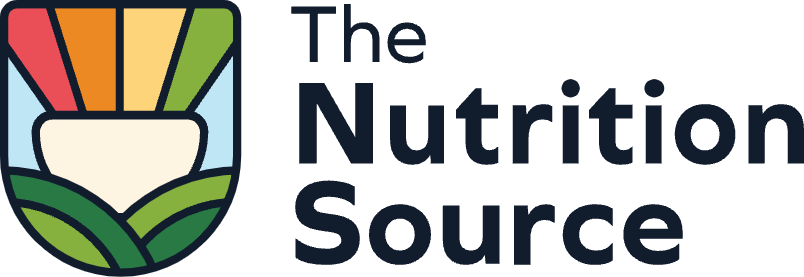
Move over plain water? Commercial beverages in the U.S. aside from alcohol are a multi-billion-dollar industry and growing rapidly. Fueled by strong consumer interest in fitness and wellness, electrolyte or sports drinks comprise a large share of the beverage market. They were originally created to prevent dehydration and electrolyte loss in young athletes who sweat and trained for hours in hot weather, which could hinder performance. Electrolyte beverages are designed to be easily absorbed in the gut to quickly rebalance mineral and fluid levels.
Eventually, marketing of the drinks shifted to a much larger audience: the non-athlete fitness enthusiast, which included anyone who donned a pair of sneakers for a weekly workout. Labeled “hydration drinks,” they claim to hydrate even better than water. Others advertise a boost in energy and fitness performance thanks to added B vitamins and caffeine. Some contain low-calorie sweeteners to enhance flavor. They’re sold in ready-to-drink bottles or as supplements in tablet and powdered form that are added to plain water.
What are Electrolytes?
Electrolytes are minerals that have an electrical charge when dissolved in water. Electrical charges are needed to contract muscles, regulate heart rhythms, and maintain healthy fluid levels inside and outside of cells. Electrolyte minerals include sodium, potassium, magnesium, phosphorus, calcium, and chloride.
Because electrolytes are so vital to the body’s automatic functions, their blood levels are tightly regulated, meaning that your blood level does not always reflect how much you are eating (or not eating) of that mineral. Healthy kidneys can excrete excess amounts of electrolytes through urine if blood levels are too high (such as after eating a salt-loaded Italian sub) as well as hold onto body water if electrolyte levels are too low.
Sources of Electrolytes
A balanced diet with fruits, vegetables, whole grains, nuts, seeds, and lean protein foods naturally provides adequate amounts of electrolytes that our bodies need. But not everyone eats a consistently balanced diet, and certain medical conditions, drugs, and situations can cause dehydration and a deficiency in these minerals
Some beverages naturally contain electrolytes. Examples include:
- Milk (high in calcium, sodium, potassium, and phosphorus)
- Orange juice and coconut water (high in potassium)
- Bouillon or broths (high in sodium).
Essentially any beverage containing electrolyte minerals may be labeled an electrolyte drink. Commercial electrolyte-branded waters and tablets contain varying ratios of electrolyte minerals. Some are very costly while offering only a small amount of these nutrients, while others may contain a high amount of only one nutrient such as potassium or sodium.
Caveats of electrolyte drinks
- Not only do electrolyte beverages contain minerals, but some are also high in sugar, calories, and caffeine, which can add up quickly if people are drinking several servings. In people who are eating poorly due to illness or who are doing intense prolonged exercise, these beverages can be helpful to replete lost minerals and calories. But in those choosing these drinks as an everyday beverage, the extra calories and minerals may do more harm than good, such as leading to weight gain. Some people with conditions like kidney disease should limit extra dietary salt and potassium.
- The American Academy of Pediatrics does not recommend sports drinks for moderate physical activity in adolescents, but only in those training regularly in endurance or high-intensity sports. Excessive consumption of sweetened sports drinks in adolescents is associated with weight gain, obesity, dental caries, poor nutrition, and diabetes.
When an exercise workout is less than one hour and of lower intensity performed in moderate temperatures, plain water is the best choice. Eating a balanced meal or a snack such as a banana with peanut butter, yogurt and pretzels, or chocolate milk shortly after a workout can naturally and safely replete electrolytes.
Recipe: Homemade electrolyte drink
To save money and better control the ingredients, a homemade electrolyte drink is easy to make. The ratio of ingredients – including electrolyte minerals, water, and a small amount of glucose in the form of sugar or honey – enhances the absorption of fluid and electrolytes into the intestines.
Basic Electrolyte Water Recipe (makes about 1 liter):
- 3 1/2 cups of water
- 1/2 teaspoon of salt (sodium chloride)
- 2-3 tablespoons of a sweetener of your choice, such as honey or table sugar
- 4 ounces unsweetened 100% orange juice or coconut water
Who Might Need More Electrolytes?
Conditions that cause the body to lose large amounts of fluid in a short time increase the risk of nutrient depletion, as minerals are carried away with the fluid. Examples are excessive diarrhea, vomiting, or sweating that can occur from viral infections, food-borne illnesses, gastrointestinal disorders, and strenuous physical activity usually longer than 1-2 hours such as with trained athletes. Excessive alcohol intake can also cause the kidneys to excrete too much fluid from the body, carrying minerals with it.
Some medical conditions or medications reduce the absorption of minerals in the body, or require an increased intake of minerals. These include:
- Surgeries of the small or large intestine
- Inflammatory bowel diseases such as ulcerative colitis and Crohn’s disease
- Postural orthostatic tachycardia syndrome (POTS) in which the body cannot maintain normal fluid levels within cells, requiring a higher intake of salt and water
- Medications such as diuretics that may be given to lower blood pressure by expelling excess fluid from the body
Signs of electrolyte imbalances
- Muscle cramps or weakness
- Headache
- Lightheadedness, dizziness
- Changes in heart rate – too low or too high
- Sudden decrease in energy level
- Nausea
- Confusion, mood changes
Bottom Line
Electrolyte beverages and sports drinks are popular alternatives to water because they add flavor and are touted to hydrate better than water. They are also heavily marketed through the billion-dollar beverage industry. Although electrolyte drinks may be useful for performance athletes who are regularly training or for those who have underlying medical conditions that place them at risk for electrolyte depletion, there is no evidence that these are healthier choices than water for the average person. Some commercial electrolyte beverages are costly, and contain extra calories from added sweeteners and high amounts of minerals like sodium that may have adverse effects in some people. Electrolytes can naturally be obtained from a balanced healthy diet.
About This Page
Written by: Nancy Oliveira, MS, RD, LDN, CDCES
Reviewed by: Teresa Fung, MS, RD, ScD
Updated: May 20, 2025
View page history
- May 20, 2025
- Page published
- Content and evidence reviewed
Sources
View source list
- Barkas F, Liberopoulos E, Kei A, Elisaf M. Electrolyte and acid-base disorders in inflammatory bowel disease. Annals of Gastroenterology: Quarterly Publication of the Hellenic Society of Gastroenterology. 2013;26(1):23.
- Convertino VA, Armstrong LE, Coyle EF, Mack GW, Sawka MN, Senay Jr LC, Sherman WM. American College of Sports Medicine position stand. Exercise and fluid replacement. Medicine and science in sports and exercise. 1996 Jan 1;28(1):i-vii.
- Cordrey K, Keim SA, Milanaik R, Adesman A. Adolescent consumption of sports drinks. Pediatrics. 2018 Jun 1;141(6).
- Ganesh R, Bonnes SL, DiBaise JK. Postural tachycardia syndrome: nutrition implications. Nutrition in Clinical Practice. 2020 Oct;35(5):818-25.
- National Library of Medicine: Medline Plus. Fluid and electrolyte balance.
- Utrilla Fornals A, Costas-Batlle C, Medlin S, Menjón-Lajusticia E, Cisneros-González J, Saura-Carmona P, Montoro-Huguet MA. Metabolic and nutritional issues after lower digestive tract surgery: The important role of the dietitian in a multidisciplinary setting. Nutrients. 2024 Jan 12;16(2):246.
Explore More

Learn about the vitamins and minerals required by our bodies to carry out a range of normal functions.

What should I drink? With so many options, it’s easy to be confused about which beverages are best for our health.

